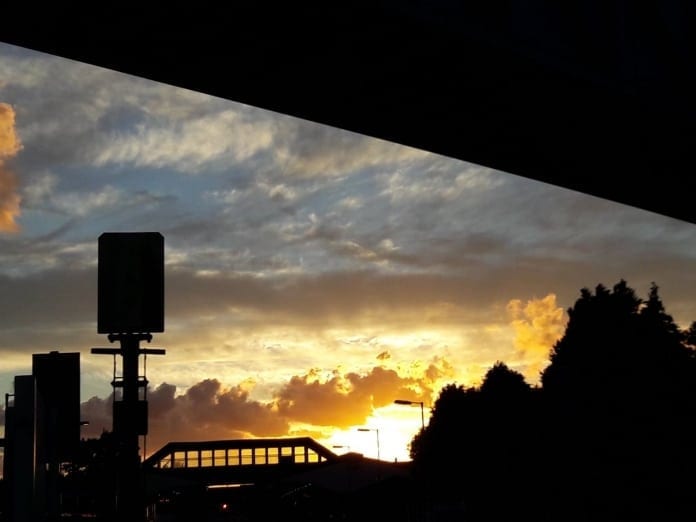White White Smack of Home
My first column for The West Wales Chronicle was about the annual commemoration for the 1911 Llanelli Railway Strike and Uprising. In a way, this piece follows on from that. Although, after seven years, the 1911 Committee has succeeded in ‘upping the profile’ of the Uprising, with this year Leanne Wood from Plaid, Mark Drakeford from Labour, Tyrone O’Sullivan ex-Branch Secretary, National Union of Mineworkers, and Steve Hedley of the Rail union the RMT participating, and in previous years Mark Serwotka of the Public and Commercial Services Union, the late Bob Crow (also of the RMT), and MP Nia Griffiths as speakers.
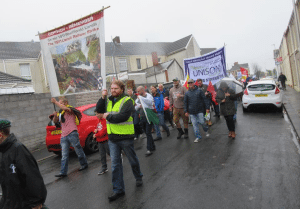
It’s worth remembering that, when we started off, there was still some opposition to publicising the events of 1911, or at least a realistic appraisal of them. John Edwards, in his excellent account ‘Remembrance of a Riot’, talks of how difficult is was to get people to come forward to be interviewed for his book, and how one colleague, upon hearing he was writing about ‘the riots’, accused him of attempting to frighten investment away from the town.
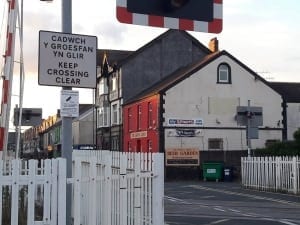
To be honest, although I think we have succeeded in these eight years in rehabilitating the 1911 Uprising, one gets a rather similar knee-jerk reaction from some quarters if one tries publicly to discuss any of the social problems that currently afflict Llanelli. Like most deprived, previously industrial areas, Llanelli has substance abuse and alcohol problems. Yet any public discussion or media exploration of this is often attacked as ‘scaremongering’, a ‘doing down’ of Llanelli which will deter businesses from investing in the town.
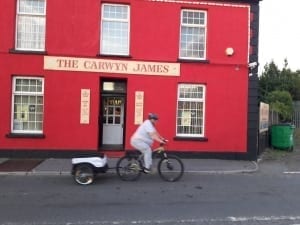
There was a documentary series on TV a few years ago which, in part, explored the issue of heroin addiction in Llanelli. My first reaction was: “Good. They are at least acknowledging the problem, and are interviewing some of the people directly affected by it, and those who are trying to do something about it.”
Yet from many quarters there was exactly the same reaction as there had been to those of us who wanted to publicise the 1911 Uprising : “Keep shtum. You’ll blacken the reputation of the town and frighten away the money.” There is a term for this in therapy (and, ironically enough, it’s heard most often in relation to addiction recovery). It’s called denial. You persuade yourself, in the face of all the evidence, that there isn’t a problem.

Strangely enough, although a similar reaction greeted publicising the 1911 Uprising to publicising Llanelli’s heroin problem, they are on entirely opposite ends of the spectrum. The aim of the 1911 Rail Strike and Uprising activities was precisely to combat the negative images of Llanelli which have grown from its social problems.
Those who have participated in the Uprising activities over the eight years of their existence see the Rail Strike and Uprising as something for Llanelli to be proud of. As I said in a previous interview, there is nothing shameful about going on strike against a greedy employer. And there is nothing shameful about rising up in revolt against state violence. (For that matter, there is nothing ‘shameful’ about heroin addiction, in my personal opinion, but that’s an argument for another week).
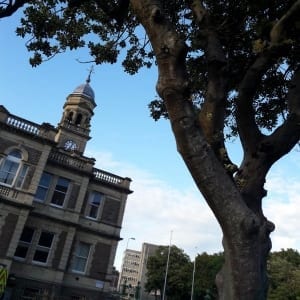
It is not the fault of the people of Llanelli that the industries that used to provide the jobs and wealth of this town have been destroyed, initially by Thatcher’s determination to smash the unions, and afterwards by the embrace, including by the Labour Party, on a national, and, I am sorry to say, on a Welsh level, of a bonkers neoliberal free-market ideology that has seen privatisation gradually destroy infrastructure and public services.
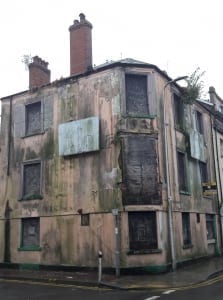
This is what is at the heart of the social problems that Llanelli suffers from today: lack of proper jobs, lack of decent affordable housing, lack of investment in creative projects which could improve the profile of the town (look and see how the Merthyr Rising Festival has, in cultural terms, put Merthyr on the map! Why could we not do the same with the Llanelli Rising?). Instead we see frankly rather odd projects like the Wellness Village. Why not put the money directly into existing NHS provision in the town? Town planning has been replaced by an attitude that, basically, hands over to corporate interests and retail chains the power to determine the shape and appearance of the town, via a ‘permissive planning regime’.
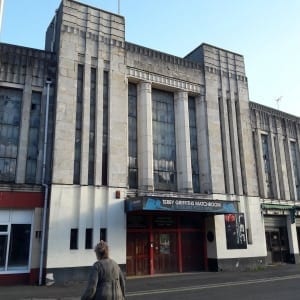
I was born and grew up in Llanelli, and have been deeply depressed over the years to see how the town centre in particular has changed from being the thriving, lively place I remembered as a child and teenager, into the dilapidated ghost town it is today. I shall be returning to this issue in future columns. I believe we need a new, radical approach both to the social problems that we face and to the overall planning of our town, so that it lives to serve the community, not the commercial interests it currently services. In the meantime, if you have any ideas how this could be achieved please feel free to contact me via The West Wales Chronicle where I will receive your message.

Photo credit: Tim Evans
Help keep news FREE for our readers
Supporting your local community newspaper/online news outlet is crucial now more than ever. If you believe in independent journalism, then consider making a valuable contribution by making a one-time or monthly donation. We operate in rural areas where providing unbiased news can be challenging. Read More About Supporting The West Wales Chronicle






















